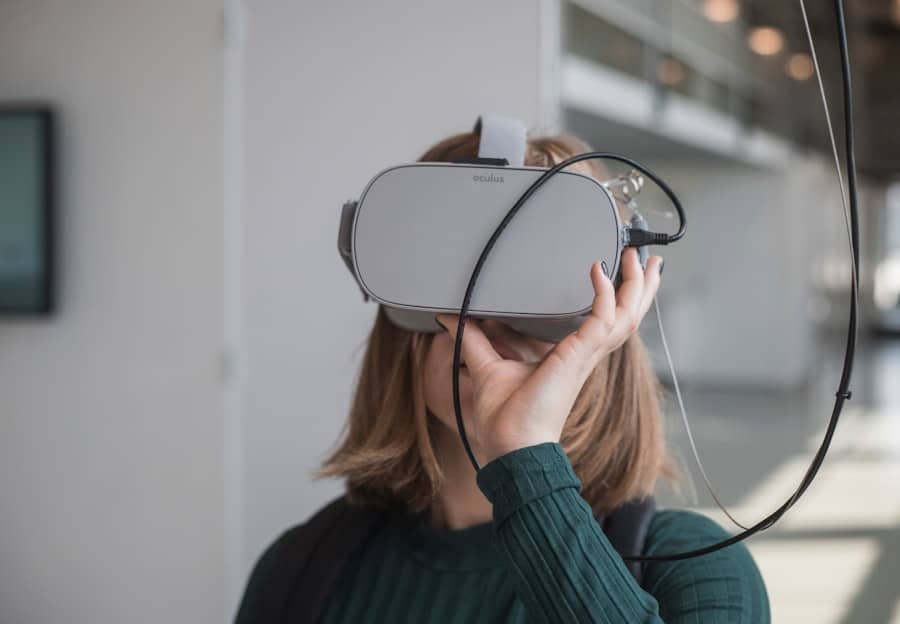The emergence of the metaverse—a collective virtual shared space created by the convergence of virtually enhanced physical reality and physically persistent virtual reality—has opened new avenues for various sectors, including the legal field. As businesses and individuals increasingly engage in transactions and interactions within these digital realms, the need for effective dispute resolution mechanisms becomes paramount. Traditional legal frameworks often struggle to keep pace with the rapid evolution of technology and the unique challenges posed by virtual environments.
This is where AI-powered legal arbitration comes into play, offering innovative solutions that leverage artificial intelligence to streamline processes, enhance decision-making, and provide equitable outcomes. AI-powered legal arbitration in the metaverse represents a transformative shift in how disputes are resolved. By integrating advanced algorithms and machine learning capabilities, this approach not only expedites the arbitration process but also enhances its accuracy and fairness.
The metaverse, with its immersive environments and diverse user interactions, presents a unique context for arbitration, necessitating a rethinking of conventional legal practices. As we delve deeper into this topic, it becomes essential to explore the role of artificial intelligence in legal arbitration, the impact of the metaverse on legal disputes, and the myriad advantages and challenges that accompany this innovative approach.
Key Takeaways
- AI-powered legal arbitration in the metaverse is a cutting-edge approach to resolving legal disputes using artificial intelligence within virtual environments.
- Artificial intelligence plays a crucial role in legal arbitration by analyzing vast amounts of data, predicting outcomes, and providing efficient and unbiased decision-making.
- The metaverse has a significant impact on legal disputes by creating new virtual spaces where legal interactions and conflicts can occur, requiring innovative arbitration solutions.
- AI-powered legal arbitration in the metaverse offers advantages such as increased efficiency, accessibility, and cost-effectiveness in resolving disputes within virtual environments.
- However, challenges and limitations of AI-powered legal arbitration in the metaverse include concerns about data privacy, algorithmic bias, and the need for human oversight and ethical considerations.
The Role of Artificial Intelligence in Legal Arbitration
Data Analysis and Pattern Identification
AI systems can rapidly sift through vast amounts of legal documents, case law, and precedents, allowing for a more thorough examination of relevant information. This enables arbitrators to make informed decisions based on comprehensive data rather than relying solely on subjective interpretations.
Predictive Capabilities and Insights
Moreover, AI can assist in predicting outcomes based on historical data. By analyzing past arbitration cases and their resolutions, AI algorithms can identify patterns and trends that may influence future decisions. This predictive capability not only aids arbitrators in understanding potential outcomes but also provides parties with insights into the likelihood of success in their claims or defenses.
Encouraging Settlements and Reducing Disputes
Such transparency can encourage settlements before disputes escalate to formal arbitration, ultimately saving time and resources for all involved.
The Impact of the Metaverse on Legal Disputes

The metaverse introduces a new dimension to legal disputes, characterized by its unique environment where physical laws do not always apply. In this digital landscape, users interact through avatars, engage in transactions using cryptocurrencies, and create content that may challenge existing intellectual property laws. These factors complicate traditional legal frameworks, as jurisdictional issues arise when parties are located in different geographical regions yet interact within a shared virtual space.
The decentralized nature of the metaverse further complicates matters, as it often lacks a singular governing body to enforce laws or regulations. Additionally, the anonymity afforded by the metaverse can lead to an increase in disputes related to fraud, harassment, and other forms of misconduct. Users may feel emboldened to engage in behavior they would not consider in the physical world due to the perceived lack of accountability.
This shift necessitates a re-evaluation of how legal systems address such issues, as traditional methods may not adequately address the nuances of virtual interactions. As a result, there is a growing need for arbitration mechanisms that are specifically designed to handle disputes arising from metaverse activities.
Advantages of AI-Powered Legal Arbitration in the Metaverse
One of the most significant advantages of AI-powered legal arbitration in the metaverse is its ability to provide swift resolutions to disputes. Traditional arbitration processes can be lengthy and cumbersome, often taking months or even years to reach a conclusion. In contrast, AI-driven systems can analyze cases and deliver decisions in a fraction of that time.
This efficiency is particularly beneficial in the fast-paced environment of the metaverse, where delays can lead to significant financial losses or reputational damage for businesses. Furthermore, AI-powered arbitration can enhance accessibility for users from diverse backgrounds. By utilizing natural language processing and machine learning algorithms, AI systems can facilitate communication between parties who may speak different languages or possess varying levels of legal knowledge.
This inclusivity ensures that all parties have a fair opportunity to present their cases and understand the proceedings, thereby promoting equity within the arbitration process. Additionally, the cost-effectiveness of AI-driven solutions can democratize access to legal resources, allowing smaller entities or individuals to seek resolution without incurring prohibitive expenses.
Challenges and Limitations of AI-Powered Legal Arbitration in the Metaverse
Despite its numerous advantages, AI-powered legal arbitration in the metaverse is not without challenges and limitations. One significant concern is the potential for bias within AI algorithms. If these systems are trained on historical data that reflects existing biases—whether related to race, gender, or socioeconomic status—there is a risk that they may perpetuate these biases in their decision-making processes.
Another challenge lies in the complexity of legal frameworks governing virtual interactions. The rapid evolution of technology often outpaces legislative efforts to regulate it effectively.
As a result, there may be gaps in existing laws that leave certain disputes unaddressed or inadequately resolved. This uncertainty can create challenges for AI systems tasked with interpreting and applying legal principles within the metaverse. Additionally, questions surrounding jurisdiction and enforcement arise when parties are located across different jurisdictions, complicating the arbitration process further.
Ethical and Regulatory Considerations for AI-Powered Legal Arbitration in the Metaverse

The integration of AI into legal arbitration raises important ethical considerations that must be addressed to ensure responsible implementation. One key issue is transparency; parties involved in arbitration should have a clear understanding of how AI systems operate and make decisions. This transparency is crucial for building trust in the process and ensuring that all parties feel confident that their cases are being handled fairly.
Regulatory frameworks also need to evolve alongside technological advancements to provide adequate oversight for AI-powered arbitration systems. Policymakers must consider how existing laws apply to virtual environments and whether new regulations are necessary to address emerging challenges. This includes establishing guidelines for data privacy, algorithmic accountability, and dispute resolution mechanisms tailored specifically for the metaverse.
Collaboration between legal experts, technologists, and regulators will be essential to create a robust framework that safeguards users’ rights while fostering innovation.
The Future of AI-Powered Legal Arbitration in the Metaverse: Opportunities and Innovations
Looking ahead, the future of AI-powered legal arbitration in the metaverse holds immense potential for innovation and growth. As technology continues to advance, we can expect to see more sophisticated AI systems capable of handling increasingly complex disputes with greater accuracy and efficiency. For instance, advancements in machine learning could enable AI arbitrators to learn from each case they handle, continuously improving their decision-making capabilities over time.
Moreover, as virtual reality (VR) and augmented reality (AR) technologies become more integrated into everyday life, they may also play a role in enhancing arbitration processes within the metaverse. Imagine a scenario where parties can present their cases in immersive virtual environments that simulate real-world settings—this could lead to more engaging presentations and clearer understandings of disputes. Additionally, blockchain technology could provide secure and transparent records of transactions and agreements made within the metaverse, further bolstering trust in arbitration outcomes.
Navigating the Intersection of AI, Legal Arbitration, and the Metaverse
As we navigate this uncharted territory at the intersection of artificial intelligence, legal arbitration, and the metaverse, it is clear that we are on the brink of significant transformation within the legal landscape. The integration of AI into arbitration processes offers unprecedented opportunities for efficiency, accessibility, and fairness; however, it also presents challenges that must be addressed through careful consideration of ethical implications and regulatory frameworks. The metaverse’s unique characteristics necessitate innovative approaches to dispute resolution that are tailored specifically for this digital realm.
In this evolving landscape, collaboration among stakeholders—including legal professionals, technologists, policymakers, and users—will be essential to harnessing the full potential of AI-powered legal arbitration while safeguarding fundamental rights and ensuring equitable outcomes for all parties involved. As we continue to explore these developments, it is crucial to remain vigilant about both the opportunities and challenges that lie ahead in this dynamic intersection of technology and law.
If you are interested in exploring the intersection of technology and law, you may also enjoy reading about how to choose a smartphone for gaming. This article provides valuable insights into selecting the best device for an optimal gaming experience. Check it out here.
FAQs
What is AI-powered legal arbitration in the Metaverse?
AI-powered legal arbitration in the Metaverse refers to the use of artificial intelligence technology to resolve legal disputes and conflicts within virtual environments. This can include issues related to virtual property, digital contracts, and other legal matters that arise within the Metaverse.
How does AI-powered legal arbitration work in the Metaverse?
AI-powered legal arbitration in the Metaverse involves the use of advanced algorithms and machine learning to analyze and resolve legal disputes. This can include automated mediation, decision-making, and the enforcement of virtual laws and regulations within the virtual environment.
What are the potential benefits of AI-powered legal arbitration in the Metaverse?
Some potential benefits of AI-powered legal arbitration in the Metaverse include increased efficiency in resolving legal disputes, reduced costs associated with traditional legal processes, and the ability to adapt to the unique challenges of virtual environments.
What are the potential challenges of AI-powered legal arbitration in the Metaverse?
Challenges of AI-powered legal arbitration in the Metaverse may include concerns about data privacy and security, the need for clear regulations and standards for virtual legal processes, and the potential for bias in AI decision-making.
How is AI technology being integrated into legal arbitration in the Metaverse?
AI technology is being integrated into legal arbitration in the Metaverse through the development of specialized algorithms, virtual dispute resolution platforms, and the use of AI-powered avatars to represent parties in virtual legal proceedings.
What are some examples of AI-powered legal arbitration in the Metaverse?
Examples of AI-powered legal arbitration in the Metaverse may include virtual courts for resolving disputes between virtual property owners, automated contract enforcement for virtual businesses, and AI-mediated negotiations between parties in virtual legal matters.

